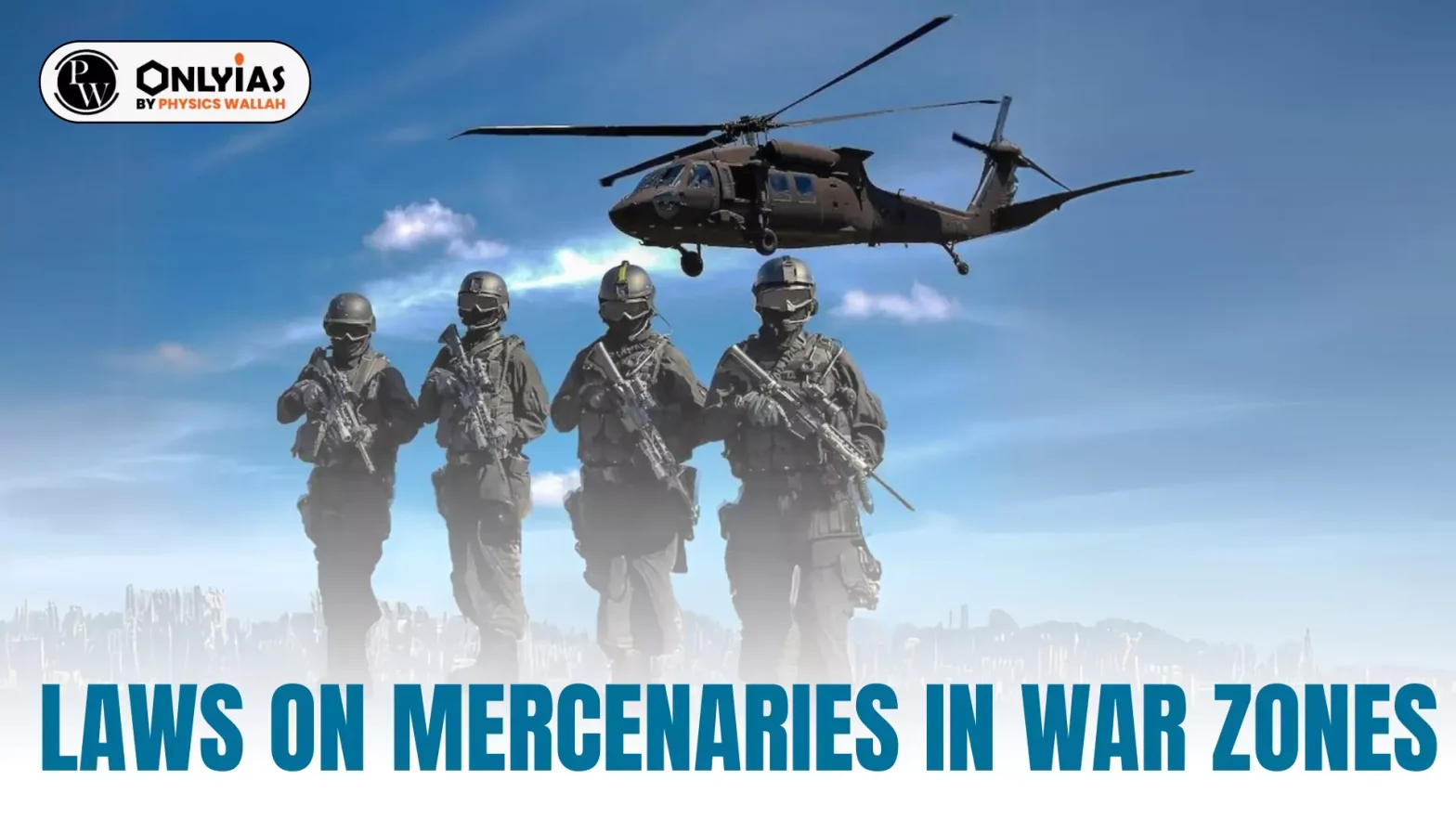The Ministry of External Affairs (MEA) acknowledged the deaths of Indian nationals who were recruited by the Russian Army during the Russia-Ukraine conflict.
| Relevancy for Prelims: Laws On Mercenaries In War Zones, Criteria for Mercenaries, Geneva Conventions, international humanitarian law (IHL), Montreux Doctrine.
Relevancy for Mains: Russia-Ukraine conflict, Limitations of international legal frameworks in addressing the challenges posed by mercenary activities, etc. |
Mercenaries in War Zones
- MEA’s Response: The Indian Embassy in Moscow raised the issue with the Russian Ambassador in New Delhi and Russian authorities, urging the swift return of all Indian nationals serving in the Russian Army.
- Disturbing Trend: These deaths highlight the issue of Indians being trafficked into international armed conflicts due to lack of domestic employment opportunities.
Enroll now for UPSC Online Course
About Mercenaries
They are also known as merc, soldier of fortune, or hired gun. It is a private individual who participates in armed conflict for personal profit.
- Criteria for Mercenaries (Article 47, Additional Protocol I, Geneva Conventions):
- Special Recruitment: Recruited locally or abroad specifically to fight in a conflict.
- Direct Participation: Actively involved in hostilities.
- Motivation for Gain: Driven by the desire for private gain and promised significant compensation, much higher than that of regular combatants.
- Third-party Nationality: Not a national or resident of a party to the conflict.
- Non-Member of Armed Forces: Not part of the armed forces of a conflict party.
- No Official Duty: Not sent by a non-conflict state on official duty.
- Legal Status and Treatment of Mercenaries:
- No Crime by Definition: Being a mercenary is not a specific crime under customary international humanitarian law (IHL).
- No Prisoner-of-War Status: Captured mercenaries do not receive prisoner-of-war status or protections under the Geneva Conventions.
- Prosecution: They can be prosecuted for war crimes or other serious violations of humanitarian law and face domestic charges in the detaining country.
- Humane Treatment: They are entitled to humane treatment according to fundamental humanitarian law guarantees (Article 75, Additional Protocol 1).
Limitations of the Existing Regime
- Lack of Clear Definition:
- Ambiguity: The current regulatory regime lacks a clear and comprehensive legal definition of a mercenary.
- Domestic Laws: Most countries do not criminalize mercenary activities within their domestic laws.
- Incomplete Definitions:
- Article 47, API: The definition does not cover foreign military personnel integrated into another state’s armed forces, such as the Gurkhas in the British Army.
- Accountability: The definition also fails to address accountability for foreigners working as advisors and trainers.
- Emergence of Private Military and Security Companies (PMSCs) Increasing Role: PMSCs are taking over roles traditionally associated with mercenaries.
- Services Provided: These companies offer a range of services from combat to logistical support like food supplies for troops.
- Regulatory Gaps: The legal framework for PMSCs is loosely defined and depends heavily on a country’s domestic laws.
Regulatory Efforts and Challenges
- Montreux Doctrine: The Montreux Doctrine requires signatories to enhance oversight of PMSCs, ensuring they adhere to international humanitarian and human rights laws.
- Non-Signatories: India and Russia: Neither India nor Russia has signed the Montreux Doctrine.
- Potential Actions by India: Despite not being a signatory, India can enforce more stringent rules on how its nationals are recruited by PMSCs.
- International Legal Frameworks: There is a critical need for stronger international laws to protect individuals who may be coerced or deceived into working for PMSCs.
Way Forward
- Policy Framework: The Indian government should create a strong policy to address distress migration and human trafficking.
- Two-Pronged Approach:
- Long-term Measures: Focus on addressing economic issues that cause people to leave the country.
- Immediate Measures: Educate the public and ensure thorough pre-travel vetting for Indians going to conflict zones like Russia.
Check Out UPSC Modules From PW Store
Conclusion
Addressing mercenary recruitment of Indians requires robust policies against trafficking, better economic opportunities, and international cooperation to ensure humane treatment and legal accountability.
![]() 19 Jun 2024
19 Jun 2024

